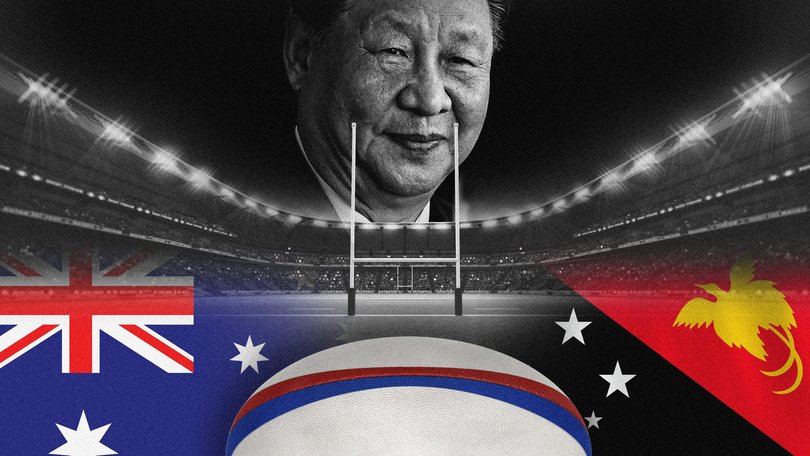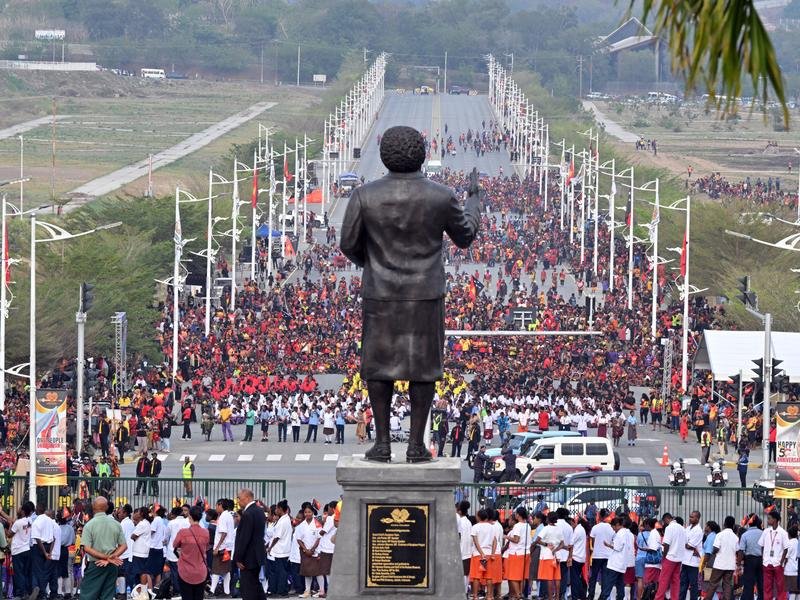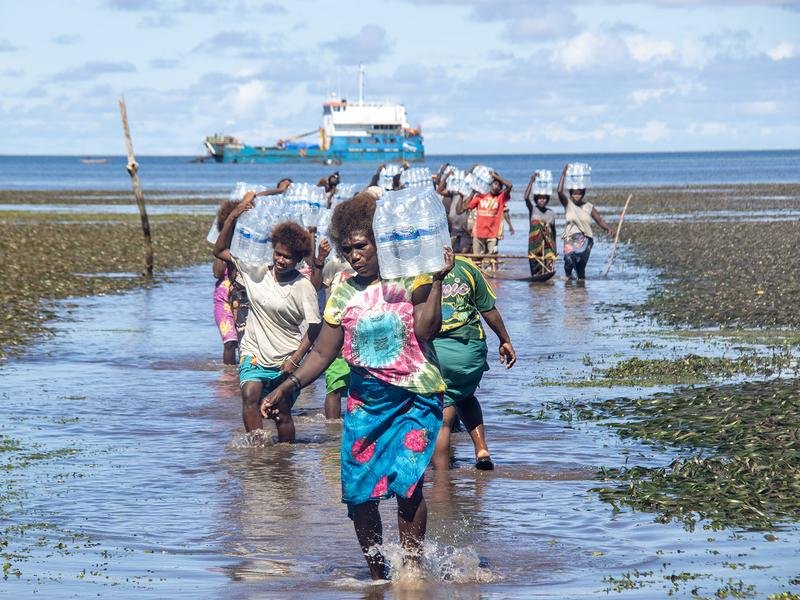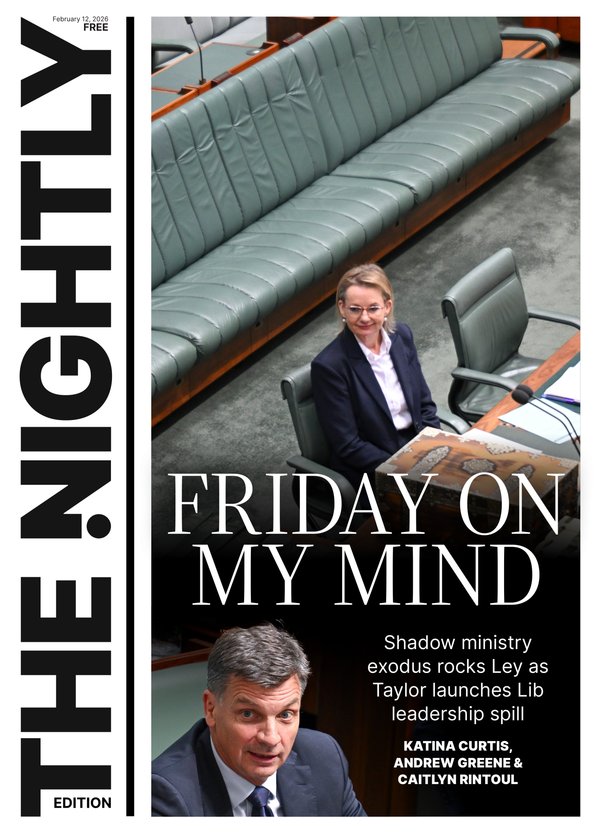Anthony Albanese makes his big move to block China in the South Pacific
AARON PATRICK: The Prime Minister left Port Moresby without a treaty but looks to have countered a major push by Beijing to split PNG from its closest neighbour and colonial parent.

China played no part in frustrating the signing of a military treaty between Papua New Guinea and Australia, PNG Prime Minister James Marape said today.
But experts believe the pact is designed to block aggressive diplomatic advances by China on Australia’s closest neighbour.
“In no way, shape or form (the) Chinese have any hand in saying don’t do this,” Mr Marape told reporters in Port Moresby.
Sign up to The Nightly's newsletters.
Get the first look at the digital newspaper, curated daily stories and breaking headlines delivered to your inbox.
By continuing you agree to our Terms and Privacy Policy.Anthony Albanese blamed the PNG’s cabinet failure to approve the treaty on ministers attending celebrations for 50 years of independence from Australia, an absence he said today was “perfectly understandable”.
But Mr Marape’s Government has not explained why it scheduled a cabinet meeting on Monday to sign off on the treaty if not enough ministers would be available to secure a cabinet quorum, or why the absent ministers could not phone in.
Instead of a treaty, Mr Albanese and Mr Marape signed a joint press release today that states both countries have agreed on a mutual defence treaty which will have to go through “cabinet processes” in Port Moresby and Canberra. In Commonwealth countries, important government decisions have to be approved by senior ministers, who comprise the cabinet, before being signed off by the governor-general.

The full wording of the treaty has not been made public, although experts say it is designed to counter China’s efforts to increase its influence across the Pacific at the expense of the US. Australian officials are concerned China’s long-term goal is to establish temporary or permanent bases in the region. A treaty with PNG would block military cooperation between China and PNG.
“This will see our already close relationship elevated to an Alliance - Australia’s first new alliance in over 70 years,” Defence Minister Richard Marles said.
Top target
As the most-populous Indigenous-led Pacific nation, Papua New Guinea has been one of China’s top regional targets. The embassy in Port Moresby is particularly active and at least 40 Chinese state-owned companies operate in the country. The Chinese Government operates a large school in Port Moresby that teaches Chinese language.
China’s approach in the region has a hard edge too. Pacific leaders elsewhere have complained Chinese officials sought to harass, bribe or undermine them. The former president of the Federated States of Micronesia, David Panuelo, said Chinese officials threatened his personal safety, according to Blake Johnson, an analyst at the Australian Strategy Policy Institute.
China’s diplomatic objective is to split PNG from Australia, its traditional ally, according to Professor James Chin, an Asian studies expert at the University of Tasmania. The Chinese Government is unhappy Australian officials have told PNG politicians they cannot trust China, he said.
“I’m sure they tried to tell the PNG government not to sign the treaty but I don’t it will work because Australia has given PNG a lot of background incentives, including offers to fund most PNG military training,” Professor Chin said.
In an example of the long-term approach taken by China, it has been building relationships with political leaders on the island of Bougainville, which has voted to succeed from PNG and could one day establish diplomatic relations with China. Although desperately poor, the island is located in the middle of a 1500km-wide stretch of ocean covering approaches to Australia’s north-east through the Solomon Sea.
“The primary motivation is China and China’s growing interest in the region,” said Sam Roggeveen, a military analyst at the Lowy Institute think tank in Sydney. “In security terms what matters is that China is never be able to establish military bases or a presence in the Pacific area.”

Pacific rugby league
The treaty delay is an example of the Albanese Government’s mixed record countering Chinese influence in the South Pacific.
Last week Vanuatu balked at signing a security and economic agreement. Despite large financial payments from Australia to the Solomon Islands, the country has welcomed Chinese police officers to train the Royal Solomon Islands Police Force, including a trial program of fingerprinting villagers not accused of crimes.
Tuvalu, Nauru and Fiji remain in Australia’s camp.
Last month Nauru agreed to accept hundreds of foreign criminals from Australia in return for about $400 million. An agreement allowing 280 Tuvaluans to move to Australia each year came into effect in 2024. In 2023 Australia and Fiji agreed to coordinate diplomatic relations and other matters.
Some critics believe Pacific states are playing off China and Australia for money. One of the biggest examples is the $600 million Australia has promised over the next 10 years for a PNG rugby league team to play in the Australian competition.
Mr Marape denied on Wednesday any connection between the team and the treaty.
“Even if there was no rugby league team in NRL, this treaty would still have been signed today,” he said. “This has nothing whatsoever to do with the rugby league.”

